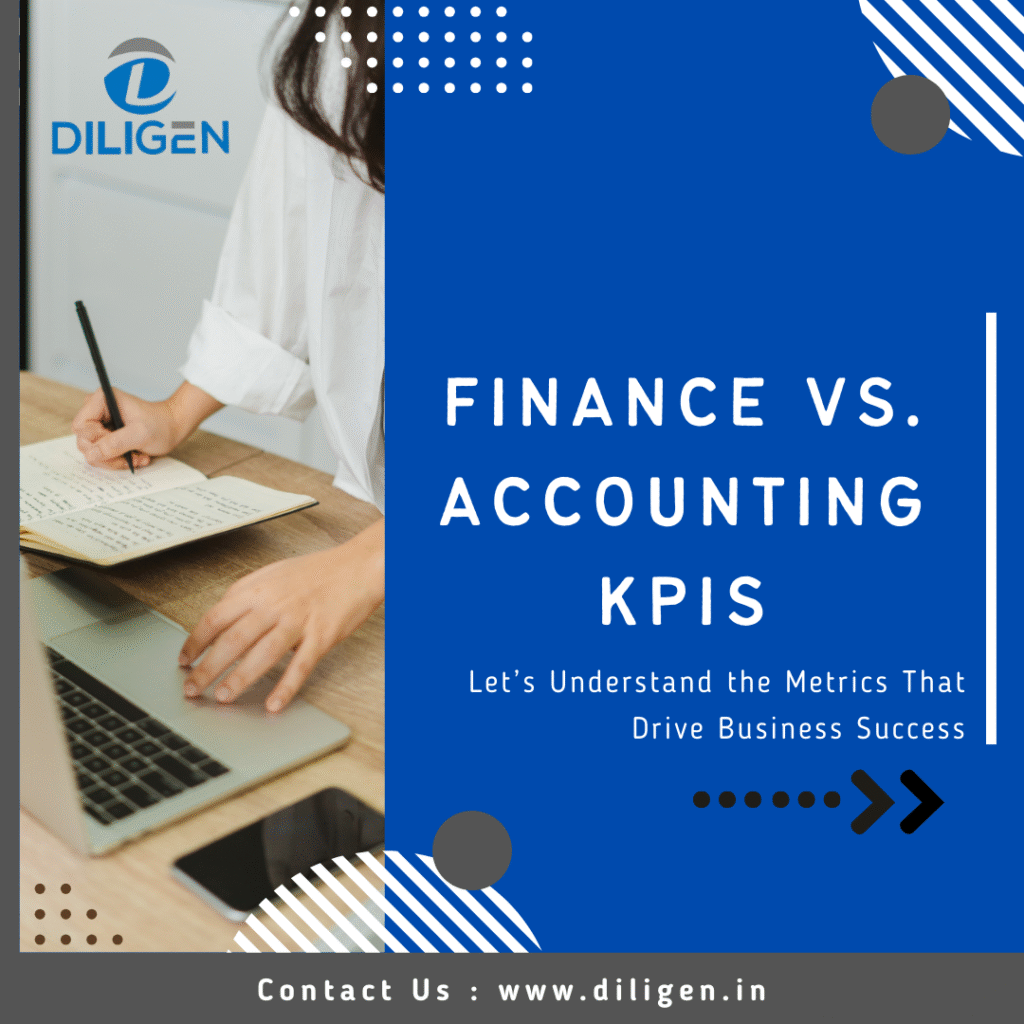Finance vs. Accounting KPIs: Understanding the Metrics That Drive Business Success
Introduction:
When evaluating business performance, knowing the difference between Finance and Accounting KPIs is more than helpful—it’s essential. Although both functions deal with numbers, their roles, priorities, and key metrics differ greatly. In this article, we’ll break down the KPIs unique to each area and explain why tracking both is vital for sustainable business success.
Why Understanding the Distinction Matters
Briefly, finance and accounting may appear similar. However, they play fundamentally different roles within an organization.
- Finance focuses on strategic planning, investment decisions, and long-term growth.
- Accounting, by contrast, ensures accuracy, compliance, and day-to-day financial operations.
Due to these differing responsibilities, each function uses distinct KPIs that serve different purposes—finance KPIs drive strategic growth, while accounting KPIs ensure stability and control.
📊 Key Finance KPIs: Tracking Strategic Growth
Finance KPIs enable leadership teams to assess the company’s financial performance, profitability, and long-term value creation. These indicators are especially useful for guiding executive decisions.
✅ 1. Gross Profit Margin
This KPI reflects how efficiently a business produces goods or services. A higher margin suggests strong pricing strategies and cost management.
✅ 2. Return on Investment (ROI)
ROI determines how effectively capital is being used. Whether for marketing or infrastructure, it answers the question: Are we getting the most out of our investments?
✅ 3. Current Ratio
This measures a company’s short-term financial health by comparing current assets to liabilities. It indicates whether the business can meet its immediate obligations.
✅ 4. Economic Value Added (EVA)
EVA goes beyond profits to show how much real value the company is generating for shareholders after covering capital costs.
✅ 5. Cash Flow Forecast
This forward-looking KPI predicts upcoming cash inflows and outflows. It’s critical for maintaining liquidity and preventing financial bottlenecks.
📌 Key Accounting KPIs: Safeguarding Accuracy and Compliance
On the other hand, accounting KPIs are designed to monitor financial accuracy, process efficiency, and regulatory compliance. These metrics help streamline internal operations and reduce risk exposure.
✅ 1. Days Sales Outstanding (DSO)
DSO tracks the average time it takes to collect payment after a sale. Lower DSO translates to faster cash inflows and stronger cash flow management.
✅ 2. Invoice Accuracy Rate
This metric identifies the percentage of error-free invoices issued. Fewer errors lead to faster payment cycles and stronger vendor trust.
✅ 3. Budget Variance
By comparing actual results against budgeted figures, this KPI highlights discrepancies that could indicate financial inefficiencies.
✅ 4. Close Cycle Time
This refers to how quickly the accounting team can close the books at month-end. A shorter cycle enhances reporting accuracy and frees up resources.
✅ 5. Compliance Rate
This evaluates how well the business adheres to tax regulations, internal controls, and financial reporting standards—key to avoiding penalties and audits.
🔍 Finance vs. Accounting KPIs: A Side-by-Side Overview
Aspect | Finance KPIs | Accounting KPIs |
Focus | Long-term Strategy & Growth | Accuracy & Regulatory Compliance |
Examples | ROI, EVA, Cash Flow Forecast | DSO, Invoice Accuracy, Budget Variance |
Users | Executives, Investors, Board Members | Accountants, Controllers, Auditors |
Time Frame | Forward-looking and Predictive | Historical and Real-time |
🚀 Why Your Business Needs Both
Focusing on only one side—finance or accounting—can leave critical gaps. While finance KPIs fuel expansion and innovation, accounting KPIs act as the guardrails that ensure control, legal compliance, and operational discipline.
By integrating insights from both sets of KPIs, businesses can develop a more comprehensive financial picture, leading to more informed decisions, fewer surprises, and long-term resilience.
✅ Final Thoughts
Whether you’re a CFO, controller, or startup founder, gaining clarity on Finance vs. Accounting KPIs is key to building a robust financial ecosystem. These metrics serve not just as performance indicators but as strategic levers for guiding the company toward excellence.
At Diligen Professional Solutions Private Limited, we specialize in helping organizations like yours identify, monitor, and act on the most relevant financial and accounting KPIs. From strategic insights to compliance assurance, we support you at every critical point in your financial journey.
📩 Get in touch with us today to explore how our tailored KPI solutions can elevate your business performance and fuel sustainable growth.





